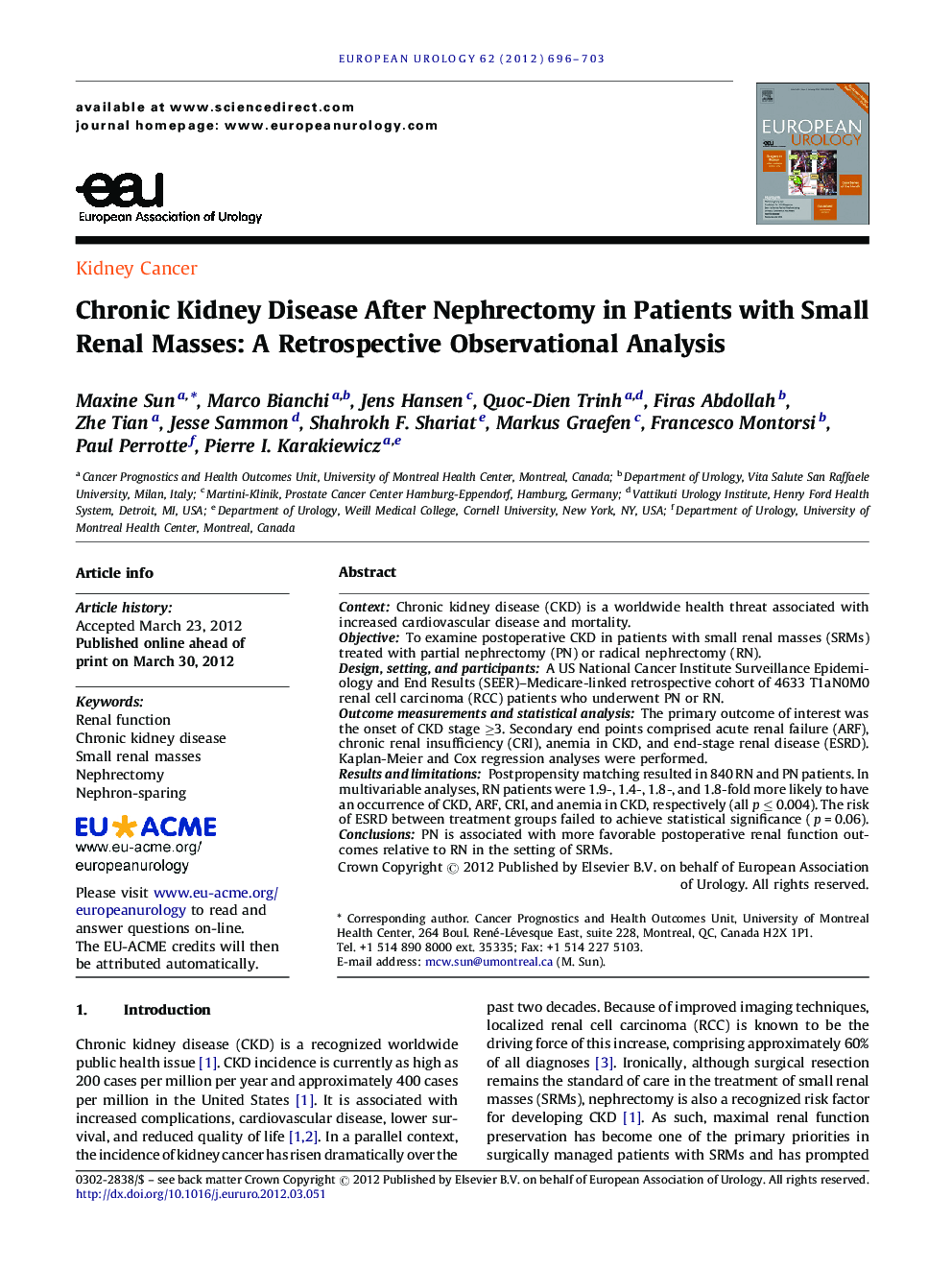| Article ID | Journal | Published Year | Pages | File Type |
|---|---|---|---|---|
| 3924013 | European Urology | 2012 | 8 Pages |
ContextChronic kidney disease (CKD) is a worldwide health threat associated with increased cardiovascular disease and mortality.ObjectiveTo examine postoperative CKD in patients with small renal masses (SRMs) treated with partial nephrectomy (PN) or radical nephrectomy (RN).Design, setting, and participantsA US National Cancer Institute Surveillance Epidemiology and End Results (SEER)–Medicare-linked retrospective cohort of 4633 T1aN0M0 renal cell carcinoma (RCC) patients who underwent PN or RN.Outcome measurements and statistical analysisThe primary outcome of interest was the onset of CKD stage ≥3. Secondary end points comprised acute renal failure (ARF), chronic renal insufficiency (CRI), anemia in CKD, and end-stage renal disease (ESRD). Kaplan-Meier and Cox regression analyses were performed.Results and limitationsPostpropensity matching resulted in 840 RN and PN patients. In multivariable analyses, RN patients were 1.9-, 1.4-, 1.8-, and 1.8-fold more likely to have an occurrence of CKD, ARF, CRI, and anemia in CKD, respectively (all p ≤ 0.004). The risk of ESRD between treatment groups failed to achieve statistical significance (p = 0.06).ConclusionsPN is associated with more favorable postoperative renal function outcomes relative to RN in the setting of SRMs.
